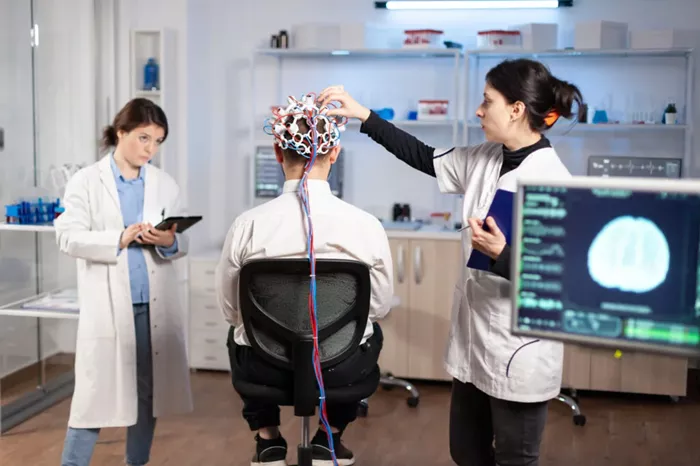Schizophrenia and bipolar disorder, two severe mental health conditions, typically emerge in early adulthood and can significantly disrupt a person’s life. Although effective treatments are available, accurate diagnosis remains a significant challenge. Research from Aarhus University and Aarhus University Hospital—Psychiatry suggests that artificial intelligence (AI) could play a pivotal role in addressing this issue. Their findings, published in JAMA Psychiatry, reveal promising results in using AI to predict diagnoses of these disorders years before they are formally confirmed.
Professor Søren Dinesen Østergaard, who leads the study, notes the difficulty of diagnosing these conditions early but affirms that the study’s outcomes indicate progress. “It is a difficult clinical challenge to solve, but we have given it a try, and the results of this study show that we are on the right track,” Østergaard said.
The research utilized electronic health records from over 24,000 patients, most of whom were treated for less severe mental health issues such as anxiety or depression. By analyzing this data, the team developed a machine-learning algorithm capable of predicting the likelihood that patients would develop schizophrenia or bipolar disorder within five years.
“If the algorithm indicates a high likelihood of developing schizophrenia or bipolar disorder within the next five years, healthcare professionals can focus their examinations on symptoms associated with these disorders, potentially leading to an earlier diagnosis and timely treatment,” explained Østergaard.
Early Predictions: A Step in the Right Direction
The machine-learning model analyzed over 1,000 factors from the patients’ electronic health records, including diagnoses, medications, and clinical notes, to identify patterns that could predict schizophrenia or bipolar disorder. The algorithm’s results show a promising, though imperfect, level of accuracy. For every 100 patients labeled as high risk, 13 were diagnosed with one of the disorders within the next five years. In contrast, for every 100 labeled as low risk, 95 remained undiagnosed.
While these findings are encouraging, Østergaard acknowledges that the algorithm’s current accuracy is not yet sufficient for clinical use. He believes further refinement is needed, particularly with a more sophisticated analysis of the clinical notes.
The Role of Clinical Notes in Predicting Mental Illness
The research revealed that specific terms in patients’ clinical notes played a crucial role in predicting the onset of these disorders. Key phrases related to symptoms like social withdrawal and auditory hallucinations, as well as mentions of psychiatric hospital admissions, were strong indicators of severe mental illness.
“These indicators make perfect clinical sense,” said Østergaard, who emphasized that much more valuable data could be extracted from clinical notes. The language model used in this study, however, was relatively basic, focusing on the frequency of individual words rather than the context in which they appeared. As AI technology advances, more sophisticated models capable of understanding entire sentences, similar to those used in tools like ChatGPT, could vastly improve prediction accuracy.
“With advancements in AI, we are optimistic that future versions of the algorithm will be refined enough to support clinical practice, potentially transforming the early detection and treatment of schizophrenia and bipolar disorder,” Østergaard concluded.
This research represents a significant step toward using AI in mental health diagnostics, with the potential to improve patient outcomes through earlier intervention and more targeted treatments.
Related topic:
Workplace Bullying Disrupts Sleep for Employees and Partners
Exercise Reverses Stress-Induced Hypertension, Study Finds
New Study Reveals Grapes’ Role in Enhancing Muscle Health Across Genders

